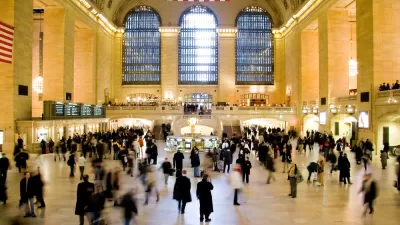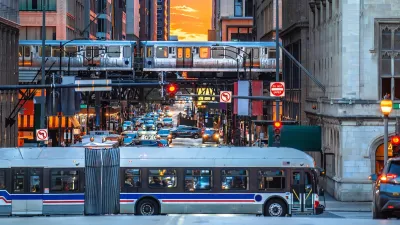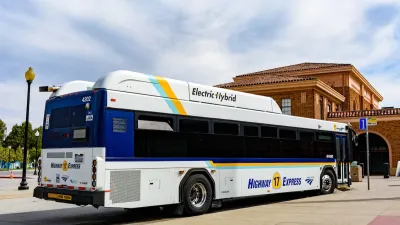City Observatory digs into the history of a Chicago suburb to answer the question: "Why don't people who say they'd like to take transit actually do it?"

Daniel Hertz examines a county where more than half of working people say they'd prefer to go to work without a car, yet nearly 90 percent drive to work.
Their reasoning is simple: In DuPage, transit doesn't go where residents need to.
Finding the reason for that requires some historical research, which Hertz delivers. He unearths the planning decisions made in the area in the 1950s, in the context of the needs of the community as well as the prevailing trends and theories at the time. Readers end up with a cautionary tale of how easily decisions about the built environment can become entrenched, and play out invisibly in everyday life years later:
[T]he decisions of planners and developers over the last several decades have created a land use pattern that essentially locks in transportation choices for all future residents, who are now stuck commuting in ways they say they’d rather not.
FULL STORY: A mystery in the suburbs

Alabama: Trump Terminates Settlements for Black Communities Harmed By Raw Sewage
Trump deemed the landmark civil rights agreement “illegal DEI and environmental justice policy.”

Study: Maui’s Plan to Convert Vacation Rentals to Long-Term Housing Could Cause Nearly $1 Billion Economic Loss
The plan would reduce visitor accommodation by 25% resulting in 1,900 jobs lost.

Planetizen Federal Action Tracker
A weekly monitor of how Trump’s orders and actions are impacting planners and planning in America.

Wind Energy on the Rise Despite Federal Policy Reversal
The Trump administration is revoking federal support for renewable energy, but demand for new projects continues unabated.

Passengers Flock to Caltrain After Electrification
The new electric trains are running faster and more reliably, leading to strong ridership growth on the Bay Area rail system.

Texas Churches Rally Behind ‘Yes in God’s Back Yard’ Legislation
Religious leaders want the state to reduce zoning regulations to streamline leasing church-owned land to housing developers.
Urban Design for Planners 1: Software Tools
This six-course series explores essential urban design concepts using open source software and equips planners with the tools they need to participate fully in the urban design process.
Planning for Universal Design
Learn the tools for implementing Universal Design in planning regulations.
Caltrans
Smith Gee Studio
Institute for Housing and Urban Development Studies (IHS)
City of Grandview
Harvard GSD Executive Education
Toledo-Lucas County Plan Commissions
Salt Lake City
NYU Wagner Graduate School of Public Service





























